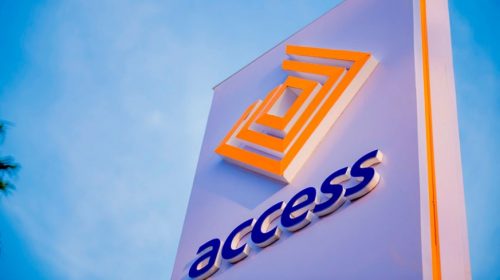Why early lesson on cashless is vital to child’s financial freedom, says Heritage Bank

As part of effort to further deepen the Central Bank of Nigeria’s cashless policy, Heritage Bank Plc, has called for early lessons for teens on how to perform basic banking tasks, as a basic tools necessary for children’s financial freedom.
In a statement made available to the media, the bank highlighted the importance to educate children on the cashless policy by showing them how prepaid card transactions work and how to use ATM cards to deposit and withdraw.
This is coming on the heels of the commemoration of the May 27 to mark Children Banking Month, with the theme, “Early Positioning for Glocal Relevance,” which is part of Heritage Bank’s children financial literacy initiative.
The Heritage Children Banking Month, which activities will directly impact a minimum of 350 primary and secondary schools nationwide this year, is in recognition of the pivotal role children play as the leaders of tomorrow.
Altogether Heritage bank at the end of the month would have imparted financial education on over 1,000 schools across the country since commencing this programme two year ago, an initiative that the vibrant and dynamic financial institution also considers as a corporate social responsibility.
Speaking on the importance of the celebration, the Managing Director of the bank, Ifie Sekibo stressed that for early positioning of your children for global and local relevance, there was need for parents to teach children on prioritize saving over spending, which is a valuable life lesson, one that takes time to learn.
According to him, opening a savings account for your child is ome of the best ways to introduce that concept at an early age.
“Walking into a branch office is a good way to help your child become familiar with routine transactions involving his or her account. Your child’s online habits, even financial, can be important, too, so check for features such as monthly statements and controls on payments and transfers from savings accounts. You can teach money management and internet safety together,” Sekibo said.
He noted the need for parents to develop series of simple games to teach children about money with good saving habits, which becomes part of their normal development, saving for the future is likely to become a habit.
Meanwhile, the high points of the commemoration will be the selection of 10 students between the ages of 5 to16 years from the six geo-political regions who would be invited to assume various banking roles for the day.
Children who are account holders of ‘Bud Account,’ as well as prospective account holders from each of the regions will be allowed to participate in a competition to produce 60seconds video showcasing how “Glocal you are,” which would elicit social media votes.
Best 3 videos to be used on all social media platforms on the week of children’s day would be presented a tablet each as a special prize.
The MD added: “The project is part of Heritage Bank’s contribution towards transforming the nation in paying more attention to the bud stage. This underscores our belief that if we get it right with the children, then the future of the nation is guaranteed. At Heritage Bank we believe in creating, preserving and transferring wealth.”
Whilst advising parents on opening Bud Account, Sekibo noted, “when your child receives birthday money, or cash from chores, have them put some into the bank to save for bigger ticket items.”
Hundreds of exercise books, pencils, water bottles, umbrellas will be won by pupils, parents and wards in the course of the month through various engaging activities.






Leave a Reply